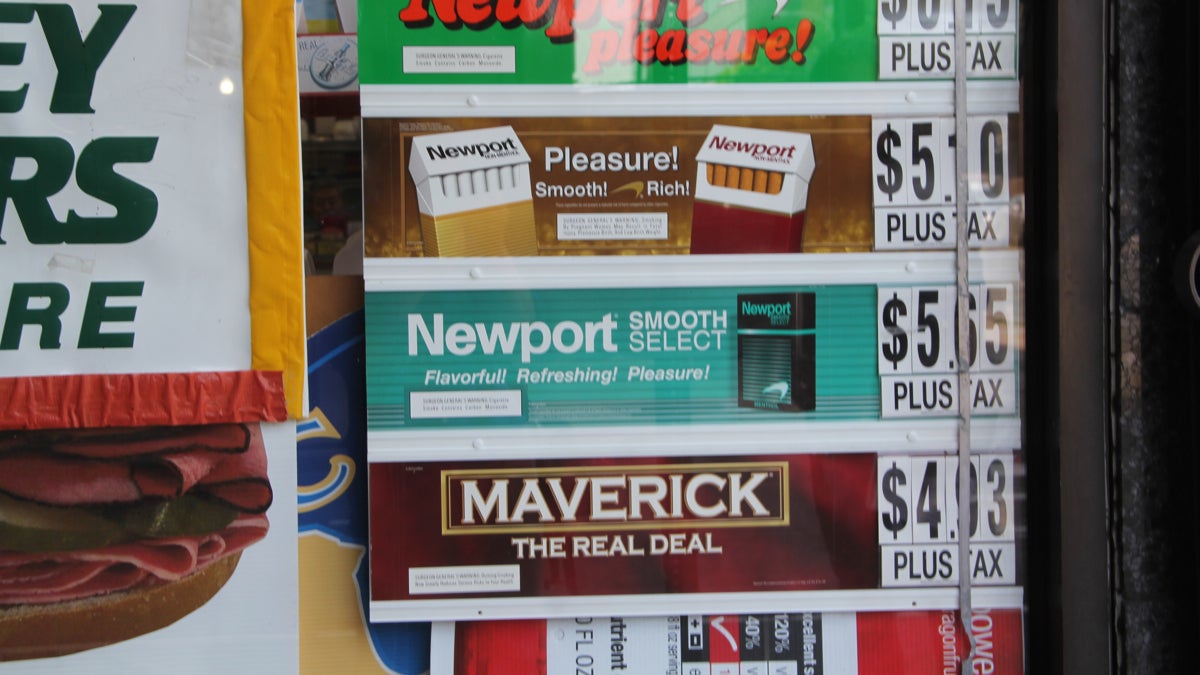Eric Garner claim aside, why Rand Paul’s complaint about cigarette taxes is especially stupid

(Emma Lee/WHYY)
I’m staying with the Eric Garner story – although this post is really about Rand Paul, and why he is such a policy lightweight.
Yesterday, I referenced the White House aspirant’s claim that Garner would be alive today if government hadn’t slapped such a hefty tax on cigarettes, prompting Garner to allegedy sell untaxed single cigs on the street. Paul said that it’s “important to know that some politician put a tax of $5.85 on a pack of cigarettes, so they’ve driven cigarettes underground by making them so expensive….I do blame the politicians.”
Actually, Garner died not because of high cigarette taxes but because of an abusive cop tactic banned in New York City since 1993; the video also shows us a swarm of cops subduing Garner on his stomach – in stark violation of a decades-old city police directive which explicitly states, “As soon as the subject is handcuffed, get him off his stomach. Turn him on his side or place him in a seated position.”
But Paul’s doltish diagnosis of Garner’s death is not the topic today. I’m more interested in his complaint about high cigarette taxes, his ideological belief that “the politicians” use such taxes to oppress The People. Granted, that’s Libertarianism 101, and he’s entitled to it. But clearly he doesn’t know squat about the social and economic benefits of high cigarette taxes in the real world.
High cig taxes prompt people to stop smoking – which lowers national health care costs, and boosts economic productivity. We’ve known all this for decades. As Tobacco Control, an international peer-reviewed journal for health professionals, has stated, “Significant increases in tobacco taxes are a highly effective tobacco control strategy and lead to significant improvements in public health.” Indeed, “well over 100 studies…clearly demonstrate (that high taxes) are a powerful tool for reducing tobacco use while at the same time providing a reliable source of government revenues.”
And here’s what a Bush administration cancer task force concluded in 2007 (the members were chosen by President Bush): “Increases in tobacco excise taxes, which are passed along to consumers in the form of higher tobacco product prices, have proven highly effective in reducing tobacco use by promoting cessation among current users, discouraging relapse among former users, preventing initiation among potential users, and reducing consumption among those who continue to use tobacco. These revenues also provide crucial dollars needed to fund anti-tobacco efforts.”
Yeah, that’s right: Government revenue. President Obama, as part of his socialist plot against America, signed an ’09 bill that hiked the federal tax from 39 cents to $1.01 per cigarette pack. The result so far: $30 billion in new revenue – earmarked for expanded children’s health care.
By the way, according to the Centers for Disease Control, the ’09 federal tax hike alone has been a major factor in reducing smoking. In 2011, only 19 percent of Americans lit up, the lowest share ever recorded. The CDC says that between ’09 and ’11, three million Americans basically quit, and a health researcher at the University of Illinois says that the federal tax hike cut teen smoking almost immediately. Pre-tax hike, roughly 13 percent of teens were users; post-hike, only 10 percent.
More federal tax hikes have been proposed – perhaps another $1 per pack – and the nonpartisan Center for Budget and Policy Priorities, which has been crunching numbers since 1981, rightly says that non-smokers also benefit from high cig taxes, “because even secondhand exposure to cigarette smoke raises the risk of cardiac disease.”
And cigarette company moguls have long viewed high taxes as their enemy. As a Phillip Morris executive wrote in a confidential document back in 1985 (a document that was unearthed in a lawsuit against Big Tobacco), “Of all the concerns, there is one – taxation – that alarms us most. While marketing restrictions and public and passive smoking (restructions) do depress volume, in our experience taxation depresses it much more severely. Our concern for taxation is, therefore, central to our thinking.”
So let’s review: High cigarette taxes depress “volume,” but provide a bounty of health and economic benefits for Americans in general. Sounds to me like a prudent policy tradeoff. But, then again, I don’t think the way Rand Paul does.
——-
But back to the Garner case. Nuff said.
Follow me on Twitter, @dickpolman1, and on Facebook.
WHYY is your source for fact-based, in-depth journalism and information. As a nonprofit organization, we rely on financial support from readers like you. Please give today.

